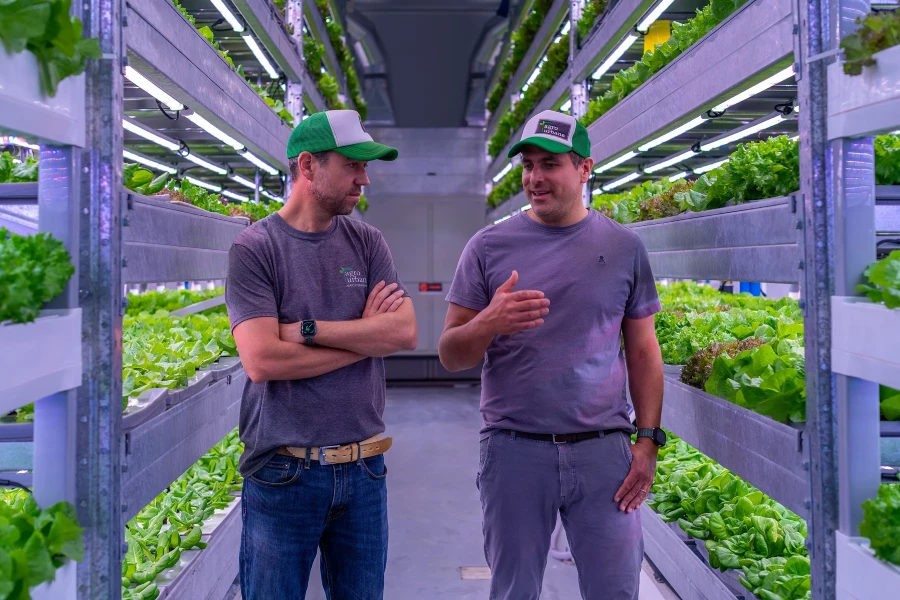AgroUrbana, do Chile, expandirá operações de agricultura vertical após rodada bem-sucedida de 6 milhões de dólares

AgroUrbanaA ALB Inversiones, uma startup chilena especializada em agricultura vertical, arrecadou com sucesso $6 milhões em uma rodada de financiamento pré-Série B. Essa rodada foi liderada pela ALB Inversiones, um escritório familiar administrado por Anita e Loreto Briones, e incluiu contribuições de investidores proeminentes, como Juan Andrés Camus, presidente da Bolsa, Amarena, Maximiliano Ibáñez, da Córpora, e investidores anteriores. O financiamento foi facilitado pela ACU Abogados e pela Echeverría Ilharreborde.
A AgroUrbana opera uma avançada instalação de agricultura vertical em Quilicura. O sistema agrícola inovador da empresa usa 99% menos terra e 95% menos água do que os métodos agrícolas tradicionais. Sua alface sem pesticidas é cultivada o ano todo, monitorada por um software patenteado chamado "Carmelo", que acompanha 52 ciclos anuais de crescimento. Essa fazenda urbana reduz os custos logísticos por estar perto de sua base de consumidores e opera em uma programação de semana de trabalho padrão.
A empresa foi fundada por Cristián Sjögren e Pablo Bunster, ambos com experiência no setor de energia. Sua colaboração começou em 2009 e levou à exploração da agricultura vertical durante um período sabático em São Francisco em 2017. Em 2018, a AgroUrbana havia se voltado inteiramente para esse empreendimento, levantando $600.000 de conexões pessoais para estabelecer seu primeiro escritório em Las Condes.
Não perca essa chance! Assine nosso boletim informativo para receber o conteúdo mais recente diretamente em sua caixa de entrada ou registro GRATUITAMENTE para obter acesso total.
Em 2019, a AgroUrbana construiu sua primeira fábrica de 400 m² em Quilicura, começando com uma produção em pequena escala. O salto significativo veio em 2021, quando a empresa garantiu $4 milhões em financiamento Série A da Kayyak Ventures. Isso permitiu que a AgroUrbana expandisse de um projeto piloto para uma operação em escala industrial, levando à construção de sua atual instalação de 4.000 m², que começou a colher no final de 2022.
O recente aumento de $6 milhões visa aumentar ainda mais a capacidade de produção. Desde 2022, a AgroUrbana quadruplicou sua produção e planeja multiplicá-la por cinco até 2025. Atualmente, a empresa está em plena capacidade, fornecendo para grandes redes como Aramark, Tavelli e Castaño, além de restaurantes como Bidasoa, Baco, Happening e Pinpilinpausha. Seu objetivo final é aumentar significativamente a produção, ocupando toda a instalação de 4.000 m² e almejando uma produção equivalente a 20 hectares de terras agrícolas tradicionais.
(imagem: AgroUrbana)


Respostas